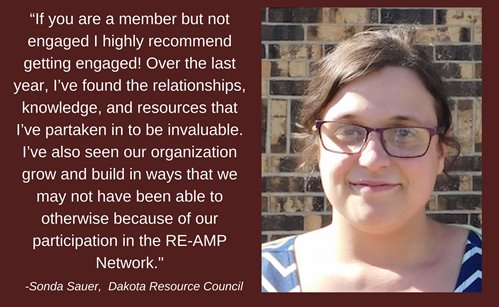We have a lot of exciting Network News for you this month!
- The ballot for the Steering Committee elections is open and there is a great mix of Network Veterans as well as new faces!
- The Systems Thinking Academy applications are now open. What is it? You can hear from members Sonda Sauers and Abby Fenton about their experiences in the academy and subsequent work as members of the RE-AMP Analysis Team (A-Team) Cohort.
- The Organizing Hub has released their Tactics Guide which you can read more about here.
- Applications are open for Action Teams.
- Catch up on the what’s been happening with the Wisconsin State Table
- Prepare for the Annual Meeting and see what other Network Events we have happening
- Don’t forget about past events in the From the Archives section!
— Feature Stories —
Member Interview: Sonda Sauer – Dakota Resource Council
I had the pleasure of catching up with Sonda Sauers this month to hear about her experience with the Systems Thinking Academy. Read her full interview to find out more about what she’s learned and how it’s help move her work forward.
– Sarah Ann Shanahan, Community Manager
Systems Thinking Cohort by Abby Fenton, Climate Generation
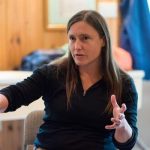 It was a privilege to work with Gail Frances and the 8 dynamic individuals who made up the RE-AMP A-Team cohort. Over the course of 8 weeks we explored a series of systems mapping tools through the experiential lens of our own “situation of interest”. These ranged from organizational strategy to state tables to pipeline resistance campaigns to small business energy efficiency. Through a progression of interactive webinars, structured activities, group reflection and one-on-one coaching we were introduced to over 10 different tools to support systems thinking, problem solving, and strategic direction. Not only was it incredibly helpful to utilize new tools to address pressing challenges in our own work, it is also exciting to envision the ways in which we can integrate these tools, and systems thinking more broadly, across the RE-AMP Network. Many thanks to Gail for her thoughtful intention and leadership on this initiative!
It was a privilege to work with Gail Frances and the 8 dynamic individuals who made up the RE-AMP A-Team cohort. Over the course of 8 weeks we explored a series of systems mapping tools through the experiential lens of our own “situation of interest”. These ranged from organizational strategy to state tables to pipeline resistance campaigns to small business energy efficiency. Through a progression of interactive webinars, structured activities, group reflection and one-on-one coaching we were introduced to over 10 different tools to support systems thinking, problem solving, and strategic direction. Not only was it incredibly helpful to utilize new tools to address pressing challenges in our own work, it is also exciting to envision the ways in which we can integrate these tools, and systems thinking more broadly, across the RE-AMP Network. Many thanks to Gail for her thoughtful intention and leadership on this initiative!
— Network News —
Ballot for RE-AMP Steering Committee by Melissa Gavin, Interim NCEO
We want to thank all of our outgoing Steering Committee members for their contribution including: Nachy Kanfer, Duane Ninneman, Satya Conway-Rhodes, Ed Miller, Jennie Curtis, Nicole Rom, Antonio Lopez, Brian Depew, and Ryan Werder.
We are excited to have new and returning leadership. The ballot will be open until Wednesday, July 12 at 8:00 pm Central to vote on this list of candidates for the RE-AMP Steering Committee.
Candidates for the 2017 Steering Committee:
Read their candidate statements.
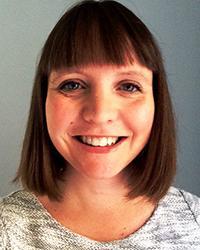 Jessica Tritsch
|
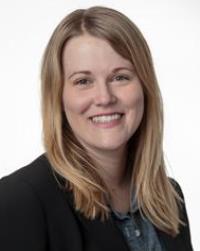 Jessica Collingsworth – Iowa Interfaith Power & Light
|
 Susan Hendershot Guy |
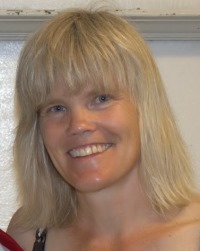 Emily Van Dunk |
 Peter Skopec |
 Liz Veazey |
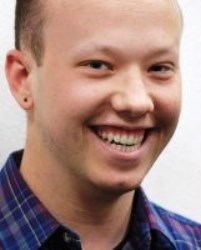 Sean Estelle |
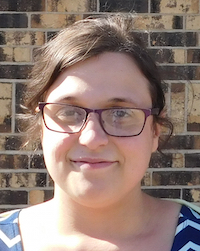 Sonda Sauers |
 Charles Griffith |
Action Teams
Level 1 Action Team Applications Open!
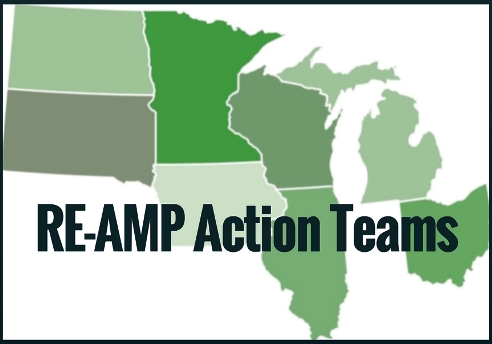
RE-AMP is excited to support cross-state strategy development and collaboration through Action Teams. A RE-AMP Action Team is a diverse group of people collaborating to solve a problem within the framework of the RE-AMP systems analysis in an equitable way. Action Teams will serve as a “strategy room” to develop regional strategies to combat climate change.
The following information is a summary of the longer document shared with the Network in spring 2017 – read the full description.
Action Teams will:
- Respond to a problem or opportunity that is identified through our shared systems analysis
- Be a collaborative effort
- Propose a solution to the identified problem
- Create excellent plans for action
- Commit to sharing what they’ve learned with the Network
RE-AMP supports three levels of Action Teams:
Level One
Interested groups complete a brief application to become a Level One Action Team. Applications are available to be filled out at https://reamp.fluxx.io (preview the questions). Completed applications are reviewed by the Action Team Committee and are considered on a rolling basis. Groups must become a Level One Action Team before becoming a Level Two Action Team. Review how Level One Action Teams will be evaluated before they advance to a Level Two. See the types of questions that you will be asked if your team decides to apply for Level Two support.
Read more here.
2017 Systems Thinking Academy Applications Open by Gail Francis, RE-AMP Knowledge Manager
 As you know, our motto in RE-AMP is “Think Systemically, Act Collaboratively.” Both of these things are increasingly important as we strive to equitably decarbonize our world. There’s a tool that can help: the 2017 RE-AMP Systems Thinking Academy. This three-day event will be an intensive introduction into the theory and practice of Systems Thinking. It will take place in Chaska, Minnesota, from October 31 – November 2, 2017. (Chaska is just outside Minneapolis.)
As you know, our motto in RE-AMP is “Think Systemically, Act Collaboratively.” Both of these things are increasingly important as we strive to equitably decarbonize our world. There’s a tool that can help: the 2017 RE-AMP Systems Thinking Academy. This three-day event will be an intensive introduction into the theory and practice of Systems Thinking. It will take place in Chaska, Minnesota, from October 31 – November 2, 2017. (Chaska is just outside Minneapolis.)
Applications for the Academy opened June 22 and close July 17. You can get a preview of the application here. In order to provide a learning environment with the necessary amount of in-depth discussion, we are limiting participation to 14 people. Previous participants have described it as the “best thing I’ve participated in in a long time,” “a great resource for anyone wrestling with a complex situation,” and said that “the combination of different tools was brilliant!” You can see all the feedback here (for 2016) and here (for 2015).
What Can You Expect to Learn at the RE-AMP Academy?
On the first day (which begins at 8:00 am on Oct. 31), we will do an introduction to Systems Thinking, and then move into an appreciation of the dynamic inter-dependencies at work in complex systems.
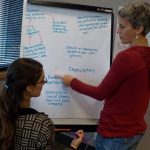 On the second day we will explore the ways that various perspectives impact our system definitions and how we can bring clarity to the boundaries of our systems. On the third and final day, we will talk about tools used by system thinkers to manage change amidst all this complexity.
On the second day we will explore the ways that various perspectives impact our system definitions and how we can bring clarity to the boundaries of our systems. On the third and final day, we will talk about tools used by system thinkers to manage change amidst all this complexity.
Who Should Attend?
This event will be geared toward people who are enthusiastic about developing their skills as systems thinkers. You don’t need previous study of the field of Systems Thinking, but you should be someone who enjoys complexity. You should also be actively involved in our RE-AMP Network, through state tables, action teams, or other activity. (Note: We are holding a couple spots for active members of other networks as well, so that we can benefit from cross-fertilization. If there is someone you would like to invite to apply, please feel free to do so.)
RE-AMP will cover your costs while you are at the Academy, including meals and lodging. We ask your organization to cover travel expenses (some travel assistance will be available). You will be expected to be fully present the entire time. We will build generous breaks into the agenda, but not enough to field conference calls or work on other projects.
Please consider applying for this unique event, and encourage other RE-AMPers to do the same!. Don’t hesitate to contact me with questions!
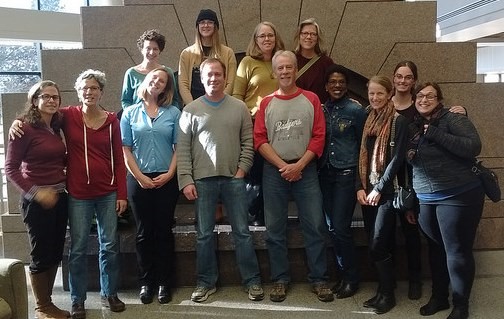
2016 participants
Gearing Up for the 2017 RE-AMP Annual Meeting: Empowering the Midwest Climate Movement
July 11th is going to be here in no time and it’s going to be a great meeting! For those of you attending we have a few helpful reminders before you arrive in Chicago.
- On July 12th we’ll have Networking Dinners- small group dinners on your own where you can mingle with fellow Network members. If you indicated that you wanted to go or are interested in attending one, please use the Networking Dinners order form to get set up.
- On July 12th, Little Village Environmental Justice Organization is hosting a Toxic Tour, a chance for you to get out into the community and learn about the struggle for environmental justice in Chicago’s Little Village neighborhood. This will also wrap up with its own networking dinner. Register for the Toxic Tour
- We’re going to be digging into our shared analysis so if you missed the most recent webinar, Analysis and Action, you’ll want to watch the May 31 Analysis and Action webinar before the Annual Meeting
- There will be Network Orientation over lunch on Day 1 and whether you’re a new member or a Network veteran there’s something for everyone! We’ll learn about the history and culture of the Network plus we’ll be doing a tour of the Commons.
See you in Chicago!
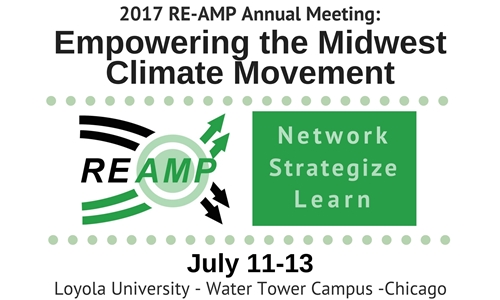
— Campaign & State Table Updates —
NEW RESOURCE! Organizing Hub Grassroots Tactic Guide by Sean Carroll
 We’re excited to announce a new planning guide, our Grassroots Tactics Planning Guide which covers 20+ grassroots tactics with an overview, a how-to, and best practices. The guide also includes survey data on which tactics have been used most often by RE-AMP members, which tactics are thought of as most effective at winning campaigns, and stories of tactics in use on campaigns.
We’re excited to announce a new planning guide, our Grassroots Tactics Planning Guide which covers 20+ grassroots tactics with an overview, a how-to, and best practices. The guide also includes survey data on which tactics have been used most often by RE-AMP members, which tactics are thought of as most effective at winning campaigns, and stories of tactics in use on campaigns.
The Organizing Hub created this guide by compiling the expertise and experience of RE-AMP organizations through surveys and interviews with over 40 member organizations.
Download the “Grassroots Tactics Planning Guide” or visit the Organizing Hub web page, where you can see a full list of the written resources we offer.

Wisconsin Climate Table Update by Paul Geenan, Organizing for Action-Milwaukee
 On June 15th, on a sunny and breezy Thursday, twenty-four members of the WI Climate Table met at the “picnic” tent in the Midwest Renewable Association grounds in Custer, WI.
On June 15th, on a sunny and breezy Thursday, twenty-four members of the WI Climate Table met at the “picnic” tent in the Midwest Renewable Association grounds in Custer, WI.
McKnight/Local Level Work
A polling company has been hired to do polling in three areas of the state, Eau Claire, Green Bay, and South Eastern Wisconsin. The goal is to get local environmental groups involved in this polling work to determine the most effective messaging for each area. More information will be sent out about this, and it is hoped that sub committees in each area will be formed to work on this project.
Transportation
The CMRT (Coalition for More Responsible Transportation) is working over the next few weeks to take advantage of the state budget process to avoid raising the gas tax, and to stop funding new major highway projects. This is a chance for a big win and to build grassroots power through the WISDOM groups in Wausau, Appleton, Eau Claire, Milwaukee, Racine, Kenosha and SE Wisconsin. A photo petitioning campaign will be launched soon. Constituents are being urged to call their constituents, volunteers are visiting transit stations to interview riders, and a graph is being prepared showing the imbalance of the state’s transportation spending.
Water
Access to clean, affordable water for sanitation and recreation is a basic right. Some groups at the table are already involved in water issues, including Citizen Action Cooperatives and the League of Conservation Voters. Water is an important issue to Native Americans as well. Inviting minorities to the table to get their ideas on the importance of water is a good way for them to become part of the solution. Water is a connector between the urban and rural areas, an “on-ramp” that resonates in urban areas. Hopefully a sub-committee working on water will be formed. Emphasizing the impact of climate change on water is part of our focus.
Adding a staff person
The group agreed that it was time to move from a volunteer leadership team model to also include a paid staff person. The leadership team has found its workload to be significant. The other six RE-AMP tables have hired a member to do much of their work. Sarah Shanahan, the RE-AMP executive that works with all the climate tables, reports that states with the staff model have had more difficulties in getting members to participate, something our table excels in. It was agreed that we “need someone sitting in the lifeguard chair” as Peter Bakken said. It was recommended that we take $8,000 in the budget, and add to it $6,000 from two leadership positions, for a total of $14,000, and hire a part time staff person.
Definition of Power
- When our decision makers hear our voices.
- Is a constituency, a community, a collaboration.
- Exists when we have effective connections with diverse constituencies.
- Enables us to break through the layer of insularity between us and our decision makers.
- Is using earned and social media to amplify our message.
 — Network Events —
— Network Events —
Small Group Conversation on Climate Action Plans | July 6
RE-AMP Annual Meeting | July 11-13th | Loyola University, Water Tower Campus
RE-AMP Systems Thinking Academy | Application closes July 17th
RE-AMP Steering Committee Elections Close| July 12th
Wisconsin State Table Meeting | October 1-2nd | Eau Claire, WI
RE-AMP Systems Thinking Academy | October 31-November 2nd| Chaska, MN
 — From the Archives —
— From the Archives —
Analysis and Action: A Discussion of Action Teams in an Equitable Deep Decarbonization Framework | May 2017 | Recording here | PowerPoint Slides available here.
In this webinar, Interim Network CEO introduces Action Teams and opens applications. Ryan Jones from Evolved Energy Research shares insights about regional implications, including cost, of a high renewables pathway to decarbonization, and Network Knowledge Manager Gail Francis shares an evolving Equitable Deep Decarbonization framework.
The Great Rural-Urban Divide and What It Means For Our Climate Advocacy Work| June 2017 | Recording here
The Organizing Hub hosted this discussion on the rural-urban divide, why it’s important, and how we can think about this in the context of our climate work. Our featured presenter is Mike McCabe, founder of Blue Jean Nation, and former executive director of the Wisconsin Democracy Campaign. The webinar includes input from a half-dozen participants on their experiences with this issue


